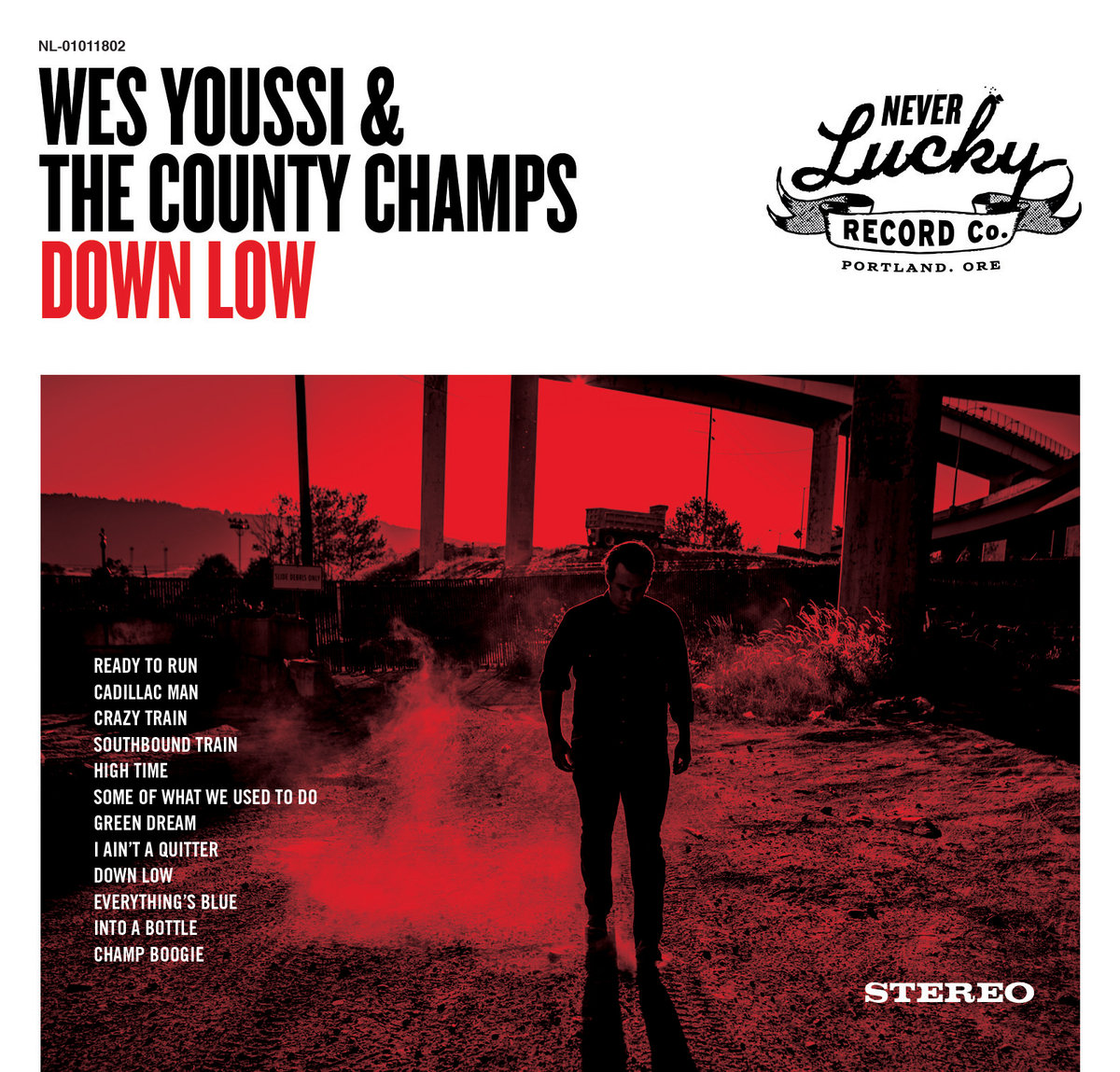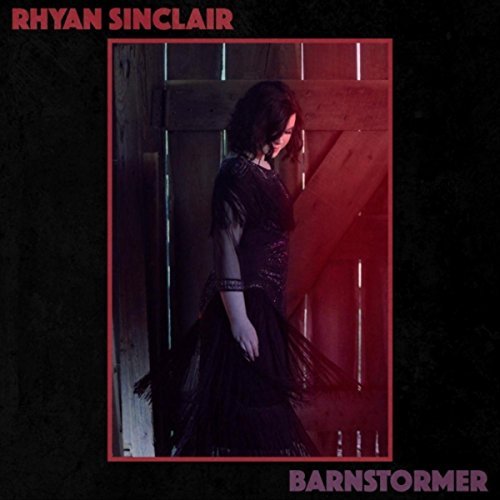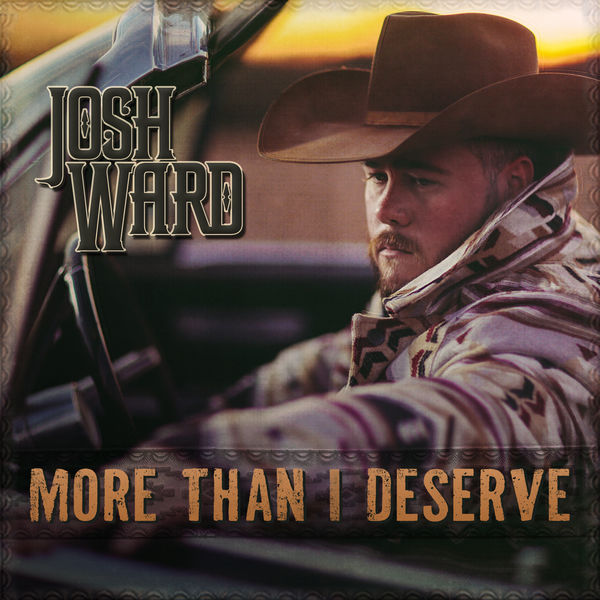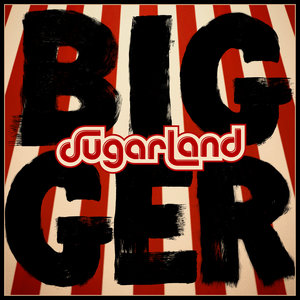Rating: 8/10
It’s a strange state in which country music finds itself in 2018. You swear it’s dead and gone, the music of a forgotten and simpler time. The mainstream has gone pop, and many of the radio stars wouldn’t know a steel guitar if it fell out of the sky and hit them in the face. You find authenticity and substance in Texas and Oklahoma, but much of that music is a hybrid of country and rock. You seek it out in Americana, and find great music there as well, but in the end, it’s still not the sound you miss. When you do hear someone make a “classic” country record, it’s so hell-bent on being old-fashioned that it sucks the beauty right out of the discipline. Then you find a random Internet comment from someone about a band from Portland, Oregon, and you stumble upon the most country thing you’ve heard in years, and you realize it’s not dead after all, you just have to know where to look.
Wes Youssi & the County Champs haven’t been affected by any of those trends in the mainstream or in Texas and east Nashville; they’ve just calmly released a staunchly country album. To all those people who want their country music to be forward-thinking and genre-bending, this may not be the album for you because it’s more a reimagining of styles than a reinvention of the wheel. It’s soaked in steel and layered with fiddle, and Wes Youssi sounds like he could have emerged from the earliest days of country music, both in his tone and his phrasing. It’s three chords and shuffling beats, and flavored with a rockabilly influence at times to give the band a unique sound. It’s like you just walked into an old country bar and heard this record coming out of the jukebox.
But at the same time, it’s not bogged down by outdated language or by a labored effort to sound retro. It’s modern in lyric and timeless in theme, it just happens to be delivered in a throwback style. That fresh approach is sprinkled all over the record, but it’s never more apparent than in “Green dream,” where the character in the song starts growing weed to make his living–“in these hard times, the treasure’s under your feet.” A song like that would have never come out of classic country, and even today, it wouldn’t have come out of the South so naturally as it does out of Oregon. And there’s passion and life in this material; you can tell Wes Youssi has a passion for these songs and stories, not just for the traditional sound itself. This is the record I wish I’d had on hand when I heard Joshua Hedley’s album because this puts a record like that to shame and explains perfectly what I struggled so hard to make sense of with that project–I wanted to like it so much, and stylistically, it was excellent. But it lacked the passion and freshness Wes Youssi brings to the table here–a record like this isn’t a copy of the old styles, reimagined for the sake of nostalgia and irony, it’s proof that those old styles can still be relevant and relatable in 2018.
Another problem with some of the more traditional records I’ve covered in the past two years is a lack of energy. Some recent examples of that would be Vivian Leva and Kayla Ray’s albums. Although I enjoyed both, I can understand how some may find those records a bit sleepy. Down Low can hardly be accused of that distinction. It’s full of upbeat moments, from the infectious title track to the catchy, more rockabilly “Cadillac Man” to the bluegrass-influenced “Southbound Train.” The band seems to understand the desperate need for upbeat traditional music like this, as displayed in the closer, “Champ Boogie,” where Wes Youssi laments the number of girls standing around in bars and clubs looking for romance, but with “hardly any dudes that wanna dance.”
There’s a humor and wit in these songs that is missing in a lot of modern country. That’s best exemplified in “crazy Train.” The song tells us of a dysfunctional marriage–they’re always yelling and fighting and breaking dishes. But in the end, they are right for each other; he advises: “Let’s talk about what we do right. we sure as hell can start a fight. And when it comes to old-time lovin,” all we need’s the moon to get goin’.” He also resolves to use paper dishes from now on.
This classic, throwback style isn’t going to be for everyone; even among the more country fans, it’s going to be a bit too unpolished and rough around the edges for some. This is for the people who like a little more grit in their classic country, and it’s fresh enough to appeal to some of the more progressive listeners as well. It’s the record I’d show to people who enjoy good modern-sounding country, to show them this traditional style isn’t archaic and outdated, that it doesn’t always sound as lifeless as many think it is, and that it can be fresh and fun in 2018. It’s an album that could turn those fans onto this sound and to older music. Just a solid, fun, replayable collection of traditional tunes keeping the sound and spirit of country music alive and well.




